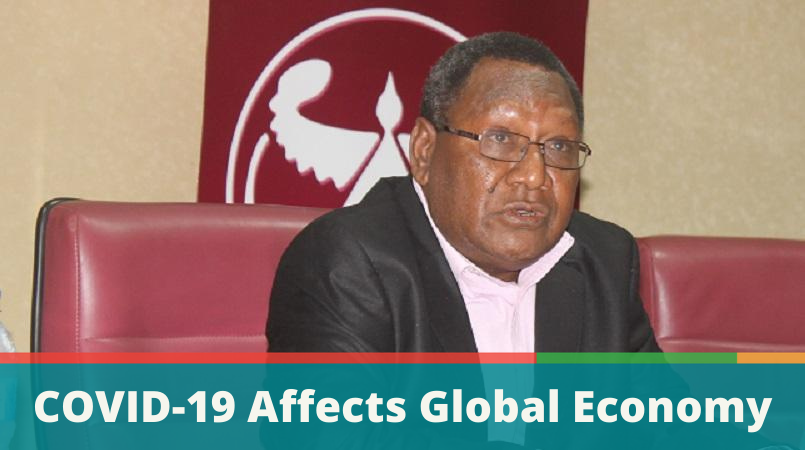
The global economic recovery in 2021 is overshadowed by the ongoing impact of the COVID-19 pandemic.
Central Bank Governor, Loi Bakani stated that the recovery reflects the impact of stimulus packages and vaccination programs, mainly in the advanced economies.
He added that the improvement in global trade and international commodity prices would support the recovery in Papua New Guinea (PNG).
The PNG Government’s fiscal support, easing of containment measures, adjustments to the new-normal working environment, and vaccination rollout will also aid the recovery.
The projected growth in PNG's Gross Domestic Product (GDP) is mainly driven by activity in the non-mineral sector.
On its part, the Bank of PNG has maintained an accommodative monetary policy stance to support the recovery.
Mr Bakani pointed out that the global economy is projected to recover strongly by 6.0 percent in 2021 from the effects of the COVID-19 pandemic, following the contraction of 3.2 percent in 2020, according to the International Monetary Fund’s (IMF) World Economic Outlook Update of July 2021.
“The recovery reflects a rebound in advanced economies supported by the fiscal stimulus packages, accommodative monetary policies and the easing of containment measures mainly on trade and travel restrictions with the rollout of vaccination programs.
“The growth in the emerging markets and developing economies was revised downwards due to rising COVID-19 infections and low rates of vaccination.”
For 2022, Mr Bakani said the IMF forecasts global economic growth of 4.9 percent.
The Bank projects real GDP in 2021 to grow by around 1.0 percent, compared to the earlier forecast of 2.5 percent in the March Monetary Policy Statement.
The lower than expected recovery for 2021 is mainly due to the projected decline in the mineral sector and uncertainties associated with the ongoing impact of the COVID-19 pandemic.
The growth in the mineral sector is revised downwards mainly due to the continued closure of Porgera Gold mine, while the non-mineral sector is expected to remain resilient.
He outlined that the expected growth in the non-mineral sector reflected favourable international prices, increased production, further easing of COVID-19 containment measures and the Government’s price support and freight subsidy programs for selected agricultural commodities.
Mr Bakani said preliminary survey data available to the Bank also points to higher employment in the second half of 2021, compared to the first half.
“Growth in employment is expected to be broad-based reflecting adjustments to the new-normal working environment, with higher activity in the agriculture/forestry/fishing, wholesale and retail, manufacturing, mining and the other services sectors.”
He said for the medium term, the reopening of Porgera Gold mine and commencement of other resource projects currently in the pipeline should boost growth.
The Bank is also mindful of the negative impact on economic activities from the ongoing COVID-19 pandemic and the risks associated with it.
